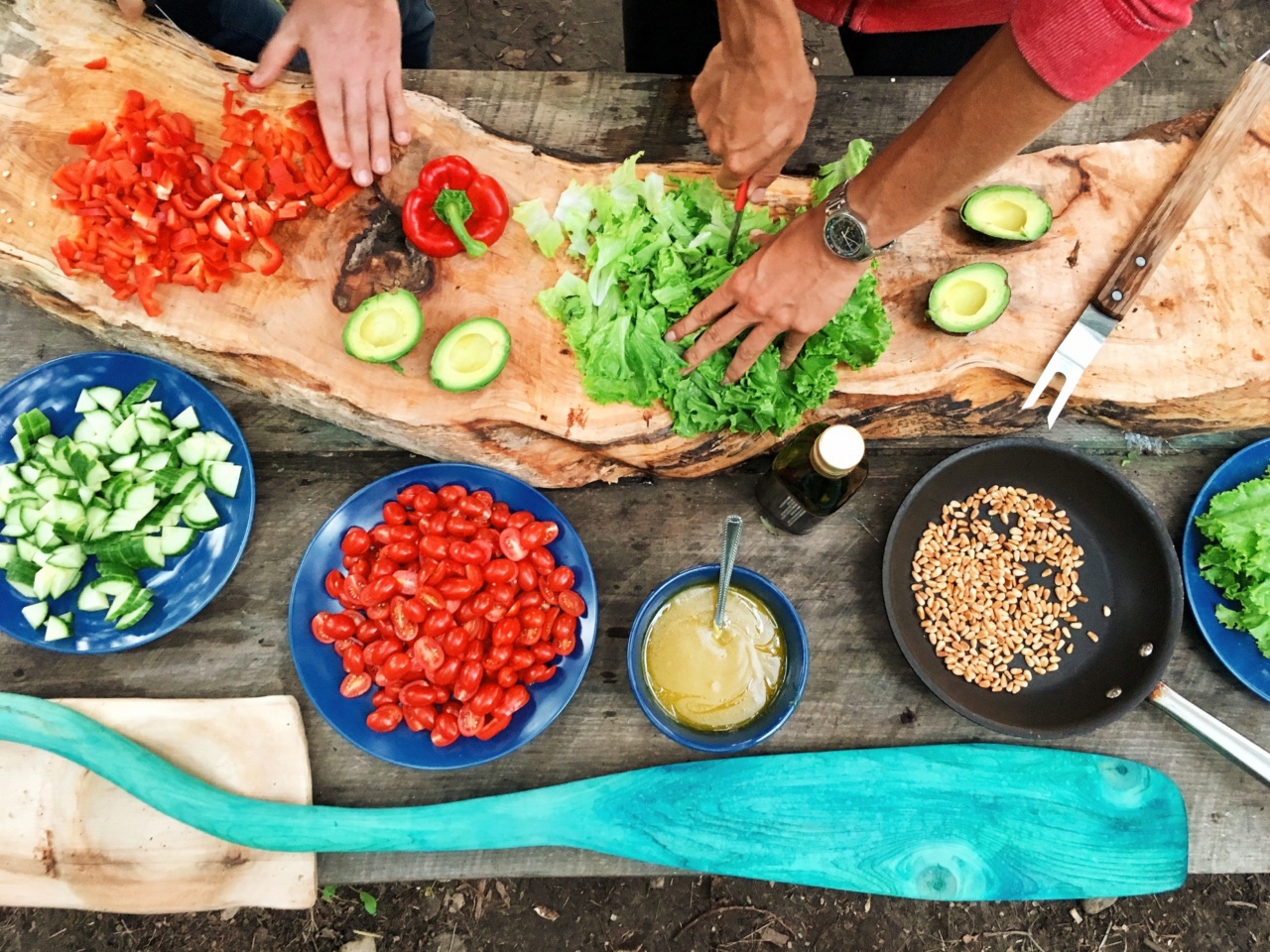Hemorrhoids are a common health issue that affects many people around the world. Also known as piles, hemorrhoids occur when blood vessels in the rectum or anus become inflamed and swollen.
The condition can cause discomfort, pain, and bleeding, making day to day activities challenging. While seeking medical treatment is necessary, maintaining a proper diet can help prevent hemorrhoids and alleviate symptoms. In this article, we will discuss the top 5 foods that can keep hemorrhoids away.
1. Fiber-rich fruits and vegetables
Eating fiber-rich fruits and vegetables is one of the best ways to prevent hemorrhoids. Fruits and vegetables contain both soluble and insoluble fibers that help soften stools and promote regular bowel movements.
This makes it easier to pass stools without straining, which is one of the leading causes of hemorrhoids. Some of the best fiber-rich fruits and vegetables are:.
- Berries: Berries such as raspberries, strawberries, and blackberries are high in fiber and antioxidants that boost digestive health.
- Apples: Apples are a great source of soluble and insoluble fiber that can help prevent constipation and hemorrhoids.
- Leafy greens: Leafy greens like spinach, kale, and collard greens are rich in fiber, including insoluble fiber, which can make bowel movements more comfortable.
- Carrots: Carrots are a great source of insoluble fiber, which adds bulk to stools and prevents straining.
Adding these foods to your diet can help regulate digestion, reduce inflammation, and prevent hemorrhoids from forming. Aim for at least 25 grams of fiber per day to promote healthy digestion.
2. Whole grains
Consuming whole grains is another excellent way to prevent hemorrhoids. Whole grains are the unprocessed versions of grains, and they are loaded with nutrients, including fiber, that support digestive health. Some common whole grains include:.
- Oats: Oats are one of the best types of whole grains that can add bulk to stools and promote healthy bowel movements. They also contain antioxidants that prevent inflammation.
- Brown rice: Brown rice is a fiber-rich whole grain that can prevent constipation and reduce pressure on the rectum and anus.
- Whole-wheat bread: Whole-wheat bread is a good source of fiber and other nutrients like zinc and iron. It can also help prevent constipation.
- Barley: Barley is another fantastic whole grain that can lower cholesterol levels, regulate bowel movements, and prevent hemorrhoids.
Try swapping refined grains like white bread, pasta, and rice for whole grains to reduce the risk of hemorrhoids.
3. Nuts and seeds
Nuts and seeds are also excellent sources of fiber, healthy fats, and nutrients that support digestive health. They can help prevent constipation, reduce inflammation, and promote healthy bowel movements. Some of the best nuts and seeds to eat include:.
- Almonds: Almonds are rich in healthy fats, fiber, and vitamin E, which work together to prevent inflammation and support digestive health. They can help prevent constipation and straining.
- Chia seeds: Chia seeds are a great source of soluble fiber that can add bulk to stools and promote healthy bowel movements. They can also prevent inflammation and blood sugar spikes.
- Flaxseeds: Flaxseeds contain healthy fats, fiber, and antioxidants that can prevent inflammation and promote regular bowel movements. They can also reduce cholesterol levels and prevent heart disease.
- Pistachios: Pistachios are loaded with fiber, healthy fats, and antioxidants that can improve digestion and reduce inflammation. They can also regulate blood sugar levels.
Eating a handful of nuts and seeds as a snack or adding them to meals can help prevent hemorrhoids and alleviate symptoms. Just be mindful of portion sizes, as they are also high in calories.
4. Water and fluids
Adequate hydration is crucial for maintaining healthy digestion and preventing hemorrhoids. Drinking enough water and other fluids can soften stools, prevent constipation, and reduce inflammation in the digestive tract.
Aim to drink at least 8-10 cups of water per day, and consume fluids like herbal tea and natural fruit juice. Limit your intake of sugary drinks and caffeine, as they can lead to dehydration and make hemorrhoids worse.
5. Yogurt and kefir
Yogurt and kefir are fermented foods that are rich in probiotics, which are live bacteria that support digestive health.
Probiotics can reduce inflammation, improve digestion, and prevent constipation, making them an excellent food for people with hemorrhoids. Yogurt and kefir are also rich in calcium, vitamin D, and other nutrients that support overall health. Aim to eat 1-2 servings of yogurt or kefir per day, and choose unsweetened varieties to avoid excess sugar.
Conclusion
Hemorrhoids can be uncomfortable and painful, making it challenging to carry out day to day activities. While seeking medical treatment is necessary, making dietary changes is also crucial for preventing hemorrhoids and making them more manageable.
Incorporating the five foods we discussed into your diet can help maintain healthy digestion and alleviate symptoms of hemorrhoids. Remember to also stay hydrated, exercise regularly, and avoid sitting for prolonged periods. With a holistic approach, it is possible to prevent and manage hemorrhoids effectively.


























